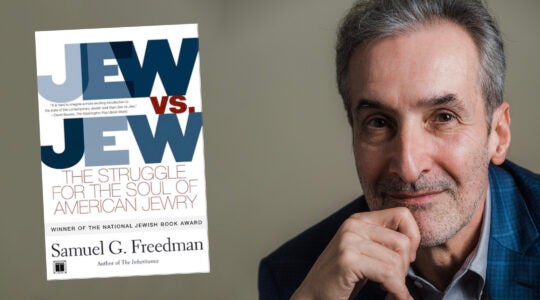I read with great interest the suggestion Gary Rosenblatt put forth in his column, “Yom Hashoah: Finding A Way To Remember” (April 9) to institute “a family-oriented program to take place in the home to mark Yom HaShoah.” Apparently he was unaware that an attempt to establish that type of memorial to be recited as part of the Passover seder was undertaken by the American Jewish Congress in the early 1950s. At that time, the Congress established a Seder Ritual Committee, which composed a memorial prayer and entitled it the “The Seder Ritual Of Remembrance.” From 1953 to 1968, the committee worked diligently to publicize the availability of the prayer and to encourage its recitation during the seder.
The practice did not become universal for two reasons: the failure by twists of fate for the ritual to be included in any Haggadah published by a major Jewish book publisher, and the refusal of the Orthodox community to approve of the practice, consistent with the idea of not adding to the Haggadah.
The great national tragedies are remembered in the sad liturgical poetry recited on the fast of Tisha b’Av, including commemoration of our six million brethren.
With the exception of the Yizkor prayer (or the hashkavah in the Sephardic synagogues), our Yom Tov ritual has been designed by our sages and their successors to accentuate the Jewish joy and not the Jewish sorrow. The Haggadah likewise reflects this tendency.
Based on my own study of Jewish liturgy, I have to agree with the statement that the day on which we should commemorate the Holocaust is Tisha b’Av, because on that day we are allowed to challenge God with a word that we are prohibited from directing towards God on all other days of the year. That word is: Why? As in: Why did God remain silent during the years of the Holocaust?
Sadly, by failing to study Jewish liturgy and by neglecting to teach our rabbinic leaders the history of the words and structure of the Jewish prayerbook, our religious leaders deprived Holocaust survivors the opportunity to sit on the ground on Tisha B’Av and to cry out: why? Thankfully it is not too late for those same leaders to give my children, grandchildren and me the opportunity to do so.
Executive Director
The Beurei Hatefila Institute
The New York Jewish Week brings you the stories behind the headlines, keeping you connected to Jewish life in New York. Help sustain the reporting you trust by donating today.




